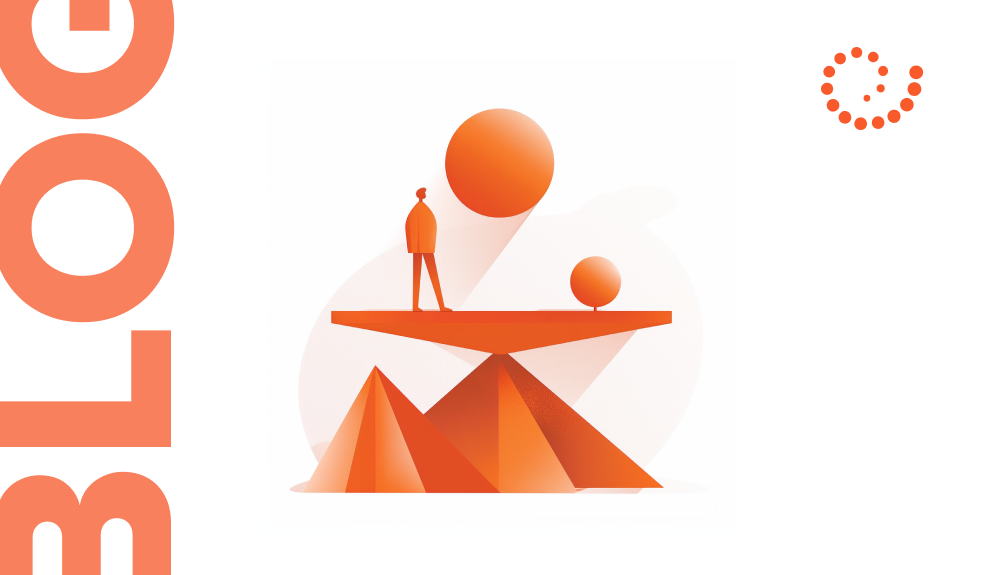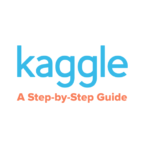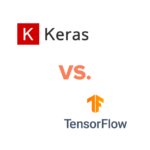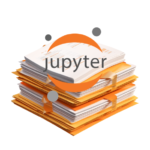
Balancing Innovation and Privacy: The Future of AI-Driven startups in IT
Kristijan Pušić | March 26th, 2024
Running an AI startup in the HR field about IT mentorship and psychological assessments? Lots of questions are opened regarding ethical and privacy issues. Assuming a startup would be using a 3rd party LLM adds extra complexity to the whole idea. Protecting users and data, keeping ethical terms satisfied and helping mentors in the end is the ultimate goal. I will explain a bit how 3rd party AI handles these issues, also will explain how it reflects on a startup codebase and how to achieve such ethical and privacy standards.
Ethical AI Frameworks: It’s crucial for AI startups, especially those involved in mentorship and HR technologies, to adhere to established ethical AI frameworks.
These frameworks typically encompass principles of fairness, accountability, transparency, and respect for user privacy. Implementing these frameworks involves several steps:
- Fairness: Ensure that AI systems do not perpetuate or amplify biases. This can be achieved by diversifying training data and implementing algorithms that actively identify and mitigate biases.
- Accountability: Establish clear lines of responsibility for AI system behaviors. This includes documenting decision-making processes and having mechanisms in place to audit AI systems regularly.
- Transparency: Maintain openness about how AI systems operate. This means providing users with information on how data is used, how decisions are made, and the rationale behind AI-generated outcomes.
- Privacy: Protect user data vigorously. This involves not only securing data against unauthorized access but also ensuring that data collection and processing are done with user consent and in line with regulatory requirements.
Operationalizing these frameworks within an AI startup requires a dedicated effort from the entire organization. It starts with setting clear ethical guidelines that govern AI development and deployment. These guidelines should be reflected in the startup’s culture, processes, and product design, ensuring that all team members are aligned with ethical objectives.
To implement these frameworks effectively, startups can:
- Conduct Ethical Training: Regularly train developers and staff on ethical AI principles and their importance. This helps embed an ethical mindset across the organization.
- Use Ethical AI Tools: Leverage tools and methodologies designed to evaluate and improve the ethical aspects of AI systems. This includes bias detection tools, ethical decision-making frameworks, and AI ethics checklists.
- Engage with the Ethical AI Community: Participate in forums, workshops, and conferences focused on ethical AI. This can provide valuable insights and allow startups to stay updated on best practices and emerging ethical concerns.
- Implement Continuous Monitoring: Continuously monitor AI systems for ethical compliance. This involves regular assessments of AI outcomes to ensure they align with ethical guidelines and societal values.
Adhering to ethical AI frameworks not only helps in building trust with users but also ensures that AI technologies contribute positively to society while minimizing potential harms. For startups in the HR and mentorship domain, where personal and professional development is at stake, the commitment to ethical AI is particularly important. It underpins the startup’s credibility and long-term success in delivering AI-driven solutions that are both innovative and respectful of individual rights and societal norms.
The ethical guidelines and constraints within 3rd party AI systems like ChatGPT are inherently integrated into the model’s architecture and training data.
These systems are designed from the ground up to adhere to a set of ethical guidelines, ensuring that responses are generated within those boundaries. The AI’s training involves large datasets that include examples of ethical reasoning, and the model is fine-tuned to prioritize responses that align with these ethical standards. Additionally, specific rules and filters are applied to prevent the generation of responses that could be harmful, biased, or otherwise unethical. This approach ensures that the AI’s outputs inherently respect the ethical guidelines set by its developers, making the entire process more streamlined and integrated.
AI might even modify or retract part of its response even after beginning to present it to the user, reflecting the AI’s continuous evaluation process.
This process is a part of the model’s inherent design to ensure responses are aligned with guidelines and the context of the conversation. The generation of responses is based on predicting the next word in a sequence, given a prompt and the sequence generated so far. This process involves evaluating many potential continuations and selecting the one that is most appropriate. The model is trained to consider various factors, including coherence, relevance, and adherence to safety and ethical guidelines.
If the AI starts generating a response that it evaluates as potentially not meeting these criteria partway through, it can adjust its course in real time, selecting different continuations that better align with its training and objectives. This adjustment is made possible by the underlying neural network’s architecture, which allows for flexible, dynamic generation of text based on a complex interplay of probabilities and constraints.
The distinction here is between a model dynamically steering its output towards the most appropriate content as it generates it and a separate process that evaluates and modifies content after it has been generated. In practice, the AI’s generation of text is a fluid and ongoing process, with each word being chosen based on the context of the entire conversation and the immediate preceding text, ensuring the final output is as relevant and appropriate as possible before it reaches the user.
What an AI startup needs to do on top of AI, to assure data privacy and ethics standard.
To address privacy protections effectively when integrating AI, psychological assessments, and HR practices in IT mentorship, it’s important to outline clear strategies and guidelines.
Lets see:
- Transparent Data Collection and Usage: Clearly communicate to all participants the types of data being collected, the purpose of data collection, how the data will be used, and who will have access to it. Transparency is key in building trust and ensuring participants understand the value and intent behind data collection.
- Secure Data Storage: Utilize state-of-the-art encryption methods and secure databases to store sensitive information. Ensure that data storage complies with international standards and regulations such as the General Data Protection Regulation (GDPR) for the protection of personal data.
- Limited Data Access: Restrict access to sensitive data to authorized personnel only. Implement role-based access controls (RBAC) to ensure that individuals can only access the data necessary for their specific role within the mentorship program or HR processes.
- Anonymization of Data: Where possible, anonymize data so that individual responses cannot be linked back to specific employees. This is particularly important in psychological assessments where personal insights and vulnerabilities might be revealed.
- Consent and Opt-out Options: Provide clear mechanisms for participants to consent to the collection and use of their data. Equally, offer straightforward options for individuals to withdraw their consent at any time, ensuring their participation is entirely voluntary.
- Regular Audits and Compliance Checks: Conduct regular audits of data handling practices to ensure compliance with privacy laws and regulations. Update privacy policies and practices as necessary to adapt to new legal requirements or technological advancements.
- Data Minimization: Collect only the data that is absolutely necessary for achieving the objectives of the mentorship program or HR initiative. Avoid the temptation to collect excessive information “just in case” it might be useful later.
- Privacy by Design: Incorporate privacy considerations into the development phase of AI tools and systems. Ensure that privacy protection is an integral part of the design, rather than an afterthought.
- Educate Participants: Provide training and resources to mentors, mentees, and HR professionals on the importance of data privacy, highlighting their roles and responsibilities in protecting personal information.
- Incident Response Plan: Develop and communicate a clear incident response plan for potential data breaches. Ensure rapid response capabilities to minimize the impact and notify affected individuals as required by law.
By addressing these aspects, startups can build a robust framework for privacy protection that respects individual rights while leveraging the benefits of AI and psychological assessments in IT mentorship programs. Better safe than sorry!
FAQ
How do AI and psychological assessments enhance the effectiveness of HRD practices in IT mentorship?
AI and psychological assessments provide a nuanced understanding of individual mentor and mentee profiles, facilitating more effective pairing based on complementary skills, learning styles, and personality traits. This tailored approach ensures that mentees receive guidance that resonates with their personal and professional development goals, leading to more successful outcomes and satisfaction on both sides. Furthermore, AI-driven insights can help identify broader trends and needs within the organization, allowing HR to proactively address skill gaps and foster a culture of continuous learning and improvement.
What role do feedback and continuous improvement play in AI-driven mentorship programs, and how is feedback collected and acted upon?
Feedback is a critical component of AI-driven mentorship programs, serving as a vital input for continuous improvement. Feedback is collected through various channels, including direct input from mentors and mentees, performance assessments, and engagement metrics. AI systems analyze this feedback in real-time to identify areas for enhancement, adjust mentorship approaches, and refine matching algorithms. This iterative process ensures that the mentorship program evolves to meet the changing needs of participants and maintains a high standard of effectiveness and satisfaction.
Can AI-driven mentorship programs replace human mentors entirely?
While AI-driven mentorship programs can significantly enhance the efficiency and personalization of mentorship, they are not intended to replace human mentors. The value of human experience, empathy, and intuition in mentorship cannot be fully replicated by AI. Instead, AI should be seen as a tool to augment and support the mentorship process, providing data-driven insights and administrative support to allow human mentors to focus on delivering more impactful, personalized guidance. The goal is to blend the best of both worlds, leveraging AI’s capabilities to handle scalable, routine aspects of mentorship while preserving the irreplaceable human touch for complex, nuanced interactions and decision-making.
Related posts
- Scheduled Tasks in Spring: Scaling Challenges, Standard and Non-Standard SolutionsAccurate segmentation of bone structures is crucial for diagnosing fractures, planning surgeries, and monitoring the progression of diseases like osteoporosis.
- How to Use Kaggle Datasets for Research: 10 Essential StepsUse Kaggle datasets for research responsibly. Steps: Create an account, explore, check licenses, clean data, conduct research, cite, and share.
- Keras vs. TensorFlow: Understanding the Powerhouse Duo of Deep LearningKeras and TensorFlow complement each other, choose based on needs and expertise.
- Deep Dive into eProcurement: New Article SeriesDeep dive into eProceurement: New Article Series — Stay tuned for expert advice & best practices that empower professionals in the eProcurement industry.
- Version Control of Jupyter NotebooksLearn how to effectively manage version control for Jupyter Notebooks. Discover tools like nbdime and nbconvert that enable viewing differences, enhancing code review, and streamlining workflows.
- Anemic Domain Model Anti-PatternAvoid the Anemic Domain Model anti-pattern: learn its drawbacks, violations of OOD principles, and strategies to build cohesive domain models.
Ready to Enrich Your Team?

Kristijan Pušić
IT consultant and Business developer
Our consultant is at your disposal from 9 AM to 5 PM CET working days from Monday to Friday for any additional questions.
Recent Posts
- How Brands Use AI to Track, Trace and Prove Their Sustainability Claims
- How AI Recognizes Waste: Smart Recycling Technologies in Action
- Rapid Hypothesis Testing for Driver Retention in Delivery Service
- How Setronica Created an AI Slack Bot, Part 3: Putting Our Bot to Work
- Building a Reliable Monthly Accrual Report: Overcoming Challenges and Implementing Solutions






